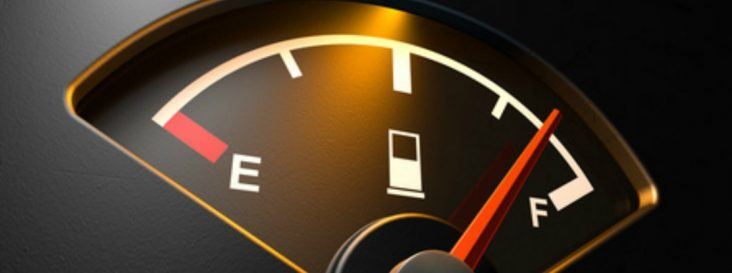Most of Arkansas Congressional delegation balks at ATA proposal to raise fuel tax
by August 10, 2017 3:22 pm 674 views

Chris Spear, president and CEO of the American Trucking Associations, wants to pay for highway infrastructure with a federal gas tax increase, but Arkansas’ Congressional delegation either opposes a tax hike or would be hesitant to seek one.
“I am against raising the gas tax,” said U.S. Sen. John Boozman, R-Ark. “Increasing taxes on hardworking Arkansans is unfair to individuals already struggling to get by.”
“When the trucking industry begs Congress to raise the diesel tax, they clearly see investment in infrastructure as critical to their business,” said U.S. Rep. Rick Crawford, R-Jonesboro. “That certainly gets my attention, and I could support it.”
“However, a national gasoline tax increase could penalize rural America, which already sees fewer Highway Trust Fund dollars than urban areas, even though its residents drive much more,” Crawford added.
At the federal level, he said legislators “should think more about reforming the funding formula to ensure each state receives the money it needs.”
U.S. Rep. Bruce Westerman, R-Hot Springs, was traveling and couldn’t be reached for comment, but he has historically been against raising the gas tax. He has looked at other ways, such as cutting the Medicaid expansion, to fund infrastructure. In 2015, he introduced the Prioritizing American Roads and Jobs Act that would have added up to $15 billion per year to the Highway Trust Fund while reducing a portion of the national debt. To do this, it would have rolled back Medicaid expansion reimbursements to traditional rates. The bill has not be reintroduced in the 115th Congress.
U.S. Rep. French Hill, R-Little Rock, was also unavailable for comment, but he’s previously written to the Committee on Ways and Means asking for a long-term solution to the Highway Trust Fund. And “he continues to stand ready to accomplish this goal,” said Caroline Thorman, communications director for Hill.
“He also sent his own personal letter to (U.S. Transportation) secretary (Elaine) Chao asking her to consider repatriating overseas earnings as a one shot infrastructure funding method,” she said.
U.S. Rep. Steve Womack, R-Rogers, declined to comment until he has more information on the issue. U.S. Sen. Tom Cotton, R-Ark. could not be reached for comment.
Shannon Newton, president of the Arkansas Trucking Association, said she’s worked for the organization for 14 years, and it’s supported raising the fuel tax since then, whether it be on the state or federal level. President Trump’s $1 trillion infrastructure proposal, which goes beyond improving highways, gives organizations like the trucking associations an opportunity to discuss raising the gas tax again.
“It’s the purest system available with the least overhead cost,” Newton said, adding that the gas tax provides 99% of its receipts to roads.
But it hasn’t been an easy sell to Congress or state legislators. The gas tax has not been raised at the state level since 2001 and at the federal level since 1993, Newton said.
ATA OPPOSES TOLLING
Since 2006, the ATA has asked Congress at least 19 times to raise the federal fuel tax to inflation, Spear said.
“For decades we have relied on the Highway Trust Fund – primarily funded by the federal fund tax that we all pay at the pump when we fill up our tanks – to help repair and maintain our nation’s roads and bridges. But the Trust Fund is on fumes, and the government has had to resort to general fund transfers to try to keep pace with maintenance.”
While he agrees highway users should pay their fair share, Spear said the trucking industry shouldn’t be responsible for all highway maintenance costs.
“Since 2008, when general fund transfers began, around 80% of federal Highway Trust Fund dollars have come directly from user fees. Trucks account for 45% of federal highway user-fee revenues paid. Yet trucks nationally amount to just 9% of vehicle miles traveled and represent just 4% of all registered vehicles.”
In May, Spear said tolling was a “disease” and “extortion,” and has spoken out against tolling in Rhode Island.
“We’re paying for all the roads and bridges in Rhode Island.”
GAS TAX IMPLICATIONS
At the time, Spear said a 20 cents per gallon tax increase would generate $80 per motorist annually.
Brad Delco, trucking/transportation analyst for Little Rock-based Stephens Inc., said a gas tax hike “would directly impact all transportation companies,” such as Lowell-based J.B. Hunt Transport Services. Those costs would be passed on to the carrier’s customers “at a fairly quick pace.”
“In my opinion, it’s essentially a tax that will be passed on to the consumer (i.e. you and me).”
When asked about how a 20-cent tax increase might impact J.B. Hunt’s fuel costs, Delco estimated costs would rise roughly 7.7%, based on the average retail price of diesel fuel at $2.59 a gallon in the second quarter of 2017. In 2016, the carrier’s fuel and fuel taxes cost $283.4 million, but Delco also said it’s important to note that the company’s purchased transportation costs also would be impacted.
J.B. Hunt’s rents and purchased transportation cost $3.25 billion in 2016, and possibly about 20% of purchased transportation costs could be attributed to fuel.
